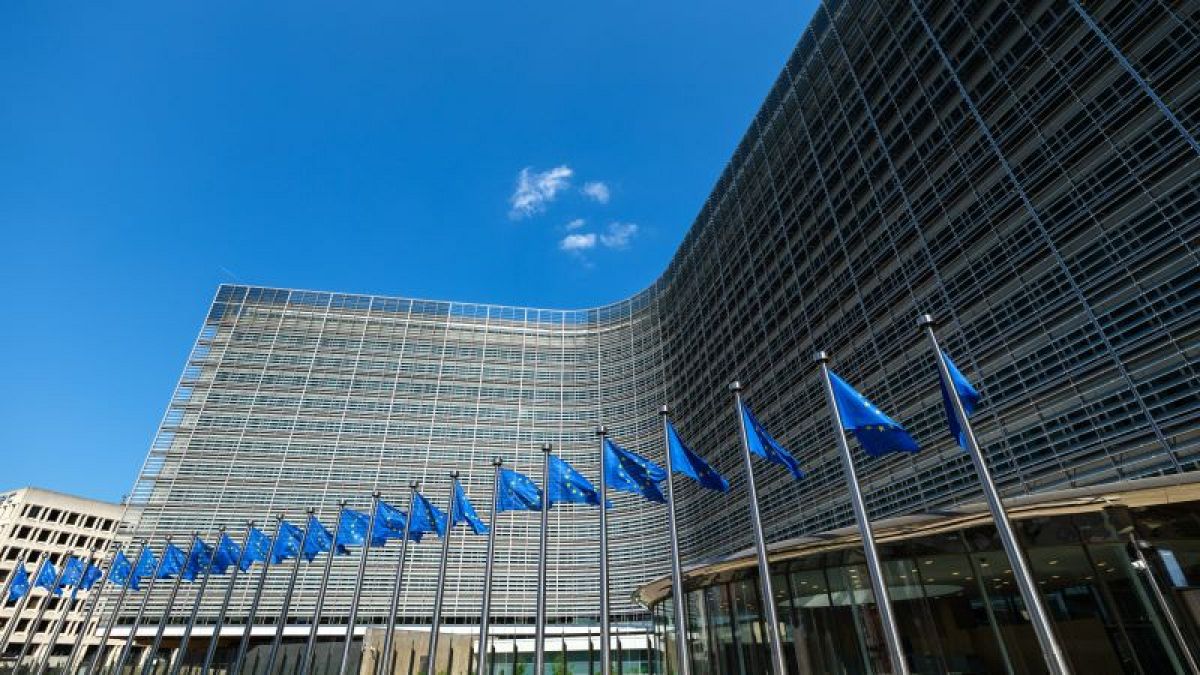Published on •Updated
The European commission on Saturday denied German media reports that it had signed ”secret contracts” with environmental NGOs to promote the bloc’s climate policy.
”Contrary to media allegations, there are no secret contracts between the European Commission and NGOs,” a commission spokesperson told Euronews. ”The Commission exercises a high degree of transparency when it comes to providing funding to NGOs.
The commission’s denial comes after German newspaper Welt Am Sonntag claimed that the EU’s Executive arm had allegedly secretly paid environmental NGOs up to €700,000 to promote the bloc’s climate policy.
The paper said it got hold of ”secret contracts” from 2022, which involved well-known NGOs like “ClientEarth,“ and ”Friends of the Earth.”
In the Welt Am Sonntag claims, the former allegedly “received €350,000 ”and was supposed to “entangle German coal-fired power plants in court cases in order to increase the operators’ financial and legal risk,” the paper said.
The paper also reported that EC officials commissioned the latter to fight against the Mercosur free trade agreement between Europe and South America – ”even though colleagues in their own house were pushing it forward at the same time,” the paper reported.
In its statement to Euronews on Saturday, the European Commission underlined that “NGOs play a crucial role in shaping, monitoring, and enforcing legislation. NGOs also remain fully autonomous and free to establish their own views on all policy matters.“
‘Inappropriate’ funding in LIFE programme conceded in January
The German report comes at a time when the issue of NGO funding has become an extremely divisive political issue in Brussels. The conservative European People’s Party (EPP) has claimed that the Commission instructed NGOs to lobby members of the parliament to further specific policies within the Green Deal, a central political agenda of president Ursula von der Leyen’s first term between 2019 and 2024.
MEP Monika Hohlmeier (Germany/EPP), told Euronews back in January that her concerns were raised when she examined some 30 funding contracts from 2022 and 2023, as part of the parliament’s annual scrutiny of EU budget spending.
In January, Budget Commissioner Piotr Serafin conceded that some financing from the EU’s €5.4 billion environmental programme LIFE may have been inappropriate. “I have to admit that it was inappropriate for some services in the Commission to enter into agreements that oblige NGOs to lobby members of the European Parliament specifically,” he said. But he also defended the role of NGOs in EU policy making.
In April, the European Court of Auditors (ECA) also concluded following a lengthy probe that the Commission’s funding of NGOs was “opaque” and exposed the executive to “reputational risk.” But the court did not find any breach of EU values from NGOs.
‘Further measures’ planned to safeguard transparency
To overcome ambiguities, the European Commission issued clear guidance last year to streamline how it provides funding to NGOs.
On Saturday, the commission spokesperson told Euronews that EU funding to NGOs was provided ”based on grant agreements, which are complemented by work programmes whose preparation falls under the responsibility of NGOs.”
“As per the guidance, the Commission has instructed its services not to sign off on work programmes if those contain overly specific activities directed at EU institutions or their representatives,” the EC statement added.
The institution will take ”further measures,“ the spokesperson said, to strengthen transparency and include appropriate safeguards.
“We have been working closely with the European Parliament and the European Court of Auditors to improve this transparency even further. Information on recipients of EU funding, including the names of recipients and amounts, is publicly available on the Commission´s Financial Transparency System website,” the statement said.

